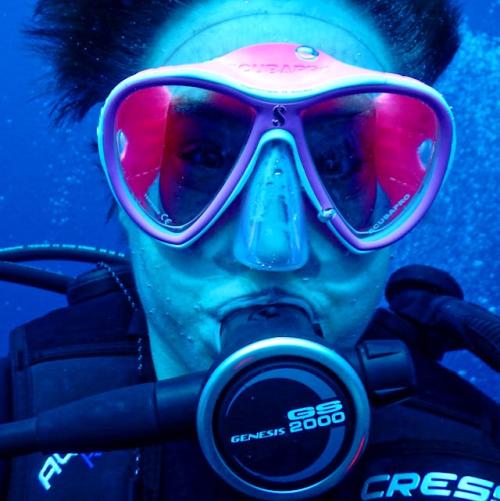

99TravelSafe.com
57 - Skin Diving and Scuba Diving Safety!


The Website For The Smart and Savvy Traveler
SAFE diving begins before you even enter the water!
Communicate with someone accompanying you about the objective of your dive, the direction, time and depth limits.
Diving skills such as emergency procedures can become rusty. Take the time to practice skills with a friend regularly in a controlled environment.
Always conduct a pre-dive safety check and maintain your gear according to manufacturer recommendations.
Ascend no faster than 30 feet per minute. Learn to ascend slowly, especially as you approach the surface.
Learn to control your buoyancy, divers who cannot do this are unsafe.
Always make a safety stop!
Never dive if you feel unwell or tired, if you are under the influence of drugs or alcohol or if you have a hangover.
Monitor your air supply. If you allow it to dwindle early on in the dive you may miss safety stops or ascend faster than you should at the end.
If using a dive computer, don’t allow it to give you a false sense of security and don’t dive to the last minute of allowable "no decompression time" at each depth.
Always wait 24 hours after diving before flying.
Receive instructions/take lessons from qualified divers before participating.
Get a medical examination and take a swim test before learning scuba diving.
Once certified, do not dive in rough or dangerous waters or in environments you are not trained to do so.
Ice, cave, and shipwreck diving require special training. One can easily get lost or trapped and run out of air!
NEVER dive by yourself but with someone! If someone is not there to dive with you, abort the dive for that day!
Learn to swim and know local weather conditions!
Never panic under water! If you become confused or afraid during a dive, try to relax, and think through the problem. Ask for help from your dive partner or dive master.
Ask your doctor what medicines are safe to use when diving and how diving can affect your health. It can be dangerous if you have certain health problems!
Become familiar with the underwater area and its dangers.
Learn which fish, coral, and other hazards you should avoid to prevent injury.
Be aware of local tides and currents.
Obey all diving instructions!
Don't enter the sea on high waves or early tides.
Always wear the right tools and equipment.
Do NOT touch marine life unnecessarily!
Pinch your nose and gently blow to equalize the pressure in your ears.
Limit your dive depth, especially if you're inexperienced.
Calculate surface interval times: Divide the depth by ten and then multiply by two to ensure ample recovery time between dives.
Do NOT hold your breath: Holding your breath underwater can rupture lung walls.
Avoid hyperventilation: Diving on an exhale greatly increases the risk of a lung squeeze.
